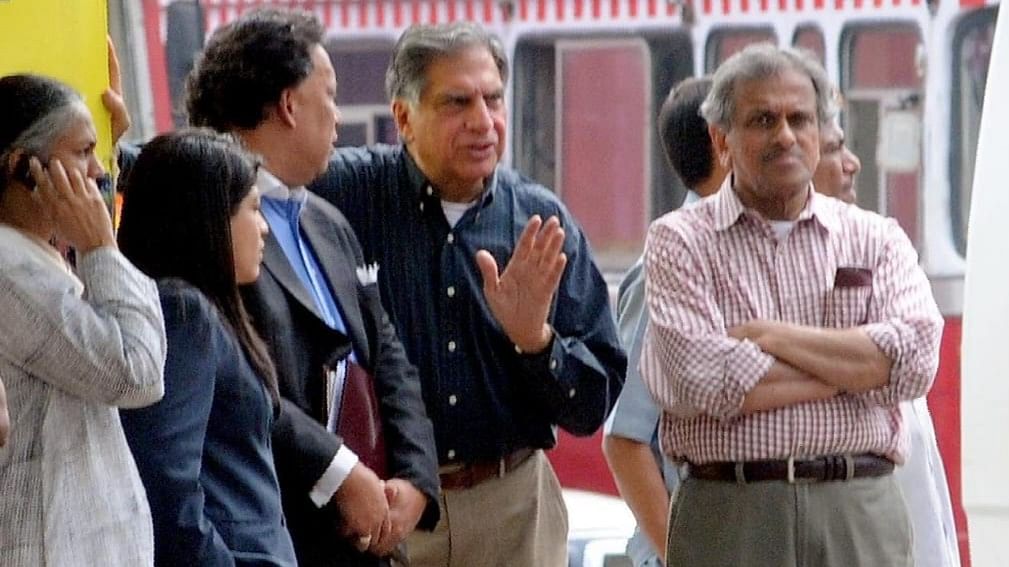
Outside the iconic Taj Hotel, Ratan Tata, displaying immense resolve, constantly monitored the operations, to flush out the terrorists from Pakistan, during the 26/11 terror attacks.
DH File Photo/Mrityunjay Bose
Mumbai: On 26 November, 2008 evening, 10 Lashkar-e-Taiba fidayeens from Pakistan launched one of the worst terror strikes in Mumbai, which is known for its financial might, ethos, hustling-bustling life and spirit.
Places like the Leopold Cafe, Chhatrapati Shivaji Maharaj Terminus, the Taj Mahal Tower, Hotel Oberoi-Trident, the Chabad House, Cama and Albless Hospital were attacked.
In front of the Arabian Sea, the Taj Mahal Tower, opposite the Gateway of India, is what Mumbai represents.
From 26-29 November, 2008 – during the 60-hour siege – 166 persons were killed and over 300 others injured.
On 29 November, 2008, the iconic Taj Hotel was the last place to be secured by the National Security Guard and the Mumbai Police - marking the end of the strike.
Ratan Tata, then the Chairman of Tata Sons, the flagship company of the Tata Group and aged 70, showed tremendous resolve.
Almost the entire day, Tata stood at the Colaba end of the iconic hotel and saw the operations standing while the media covered the incident off the Gateway of India. Tata was sometimes alone, sometimes surrounded by his aides and staff, and could be seen interacting with security personnel.
The Taj Hotel, facing the Gateway of India, is a landmark of Mumbai.
“Everyone will always remember the determination shown by him after the 2008 Mumbai attack. His firm decisions, courageous attitude and social commitment will always be remembered,” Maharashtra Chief Minister Eknath Shinde said.
A man of few words, Tata ensured that the iconic dome of the hotel and the damaged sections were reopened.
The Indian Hotels Co Ltd lived up to the expectations and the Taj Hotel became a hustling-bustling place again, however, a memorial was erected to honour the victims.
Within a month, in December 2008, the Tatas came out with The Taj Public Service Welfare Trust (TPSWT) for providing humanitarian support in the event of disasters.
Through its multi-pronged outreach has impacted 4.5 million beneficiaries across 59 districts in 22 states in India.
Tata himself visited the homes of each and every victim and ensured whatever was necessary for them.
Describing the attack as “wanton destruction that will never be forgotten”, Tata Sons Chairman-emeritus Ratan Tata, in a social media post, in 2020 wrote: “Today, we certainly can mourn the ones we lost and honour the sacrifice of the brave who helped conquer the enemy, but what we must applaud, is the unity and the acts of kindness and sensitivity which we should cherish, and which hopefully, will continue to shine in the years ahead.”
“The hurt we endured 13 years ago today, can never be undone. We should however continue to let the memory of the attacks, which were meant to break us, become the source of our strength as we honour those we lost,” Tata wrote on his Instagram page on the 26/11 anniversary in 2021.